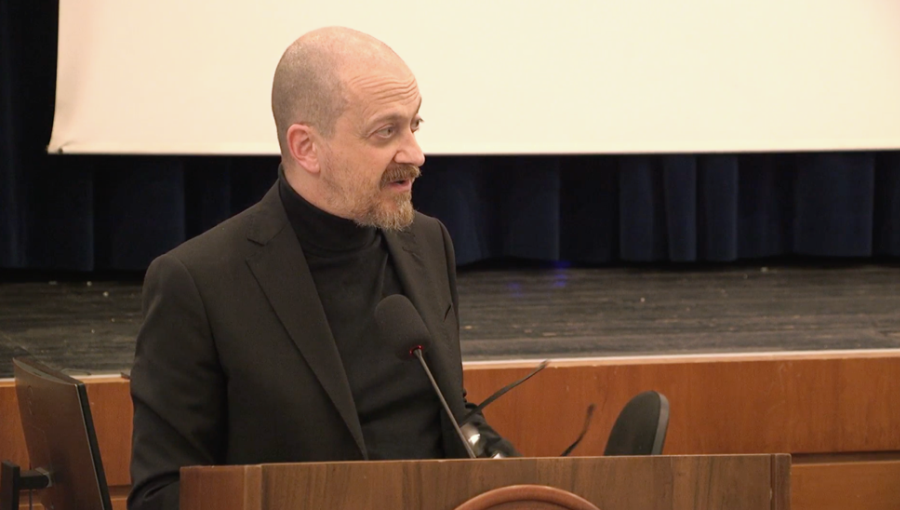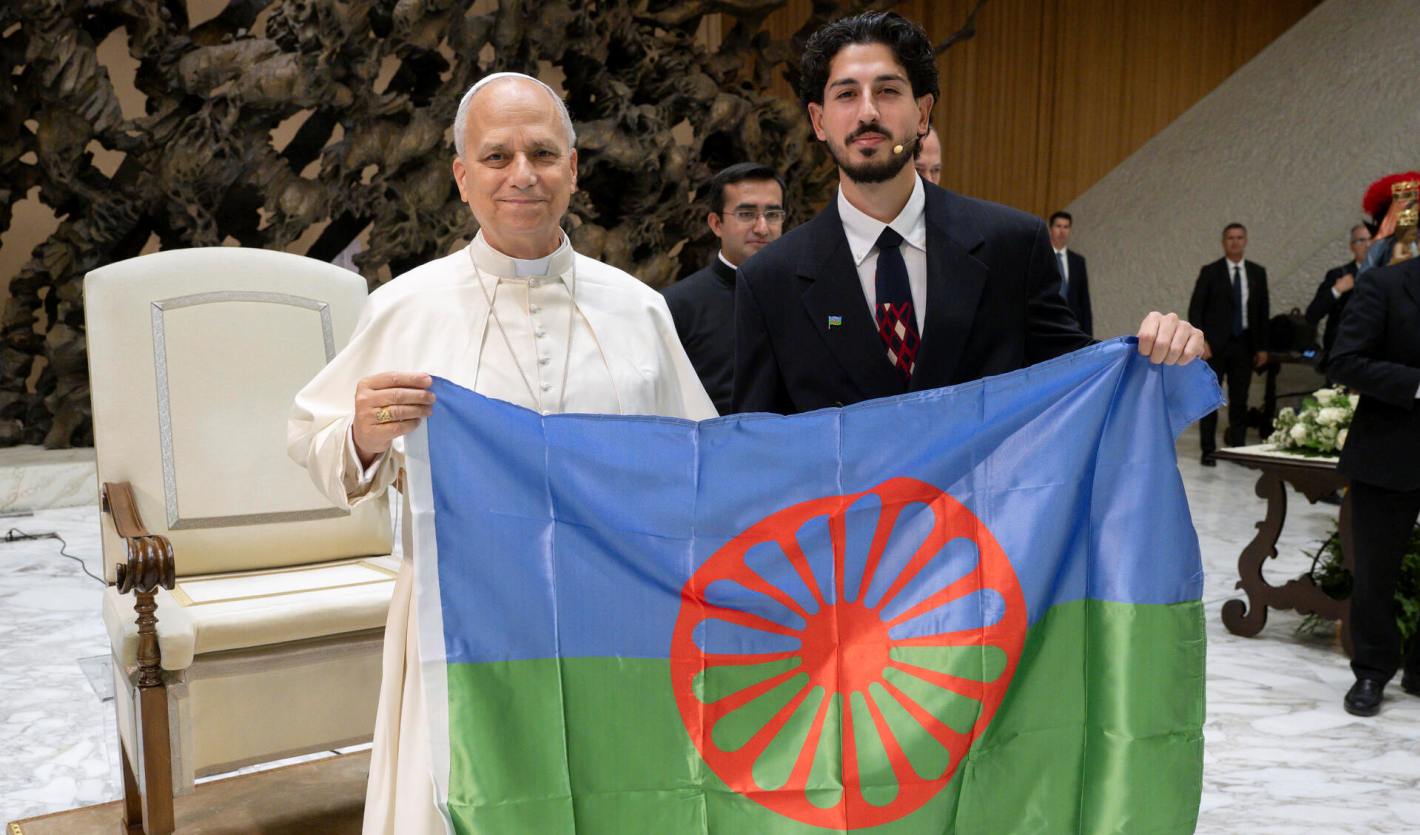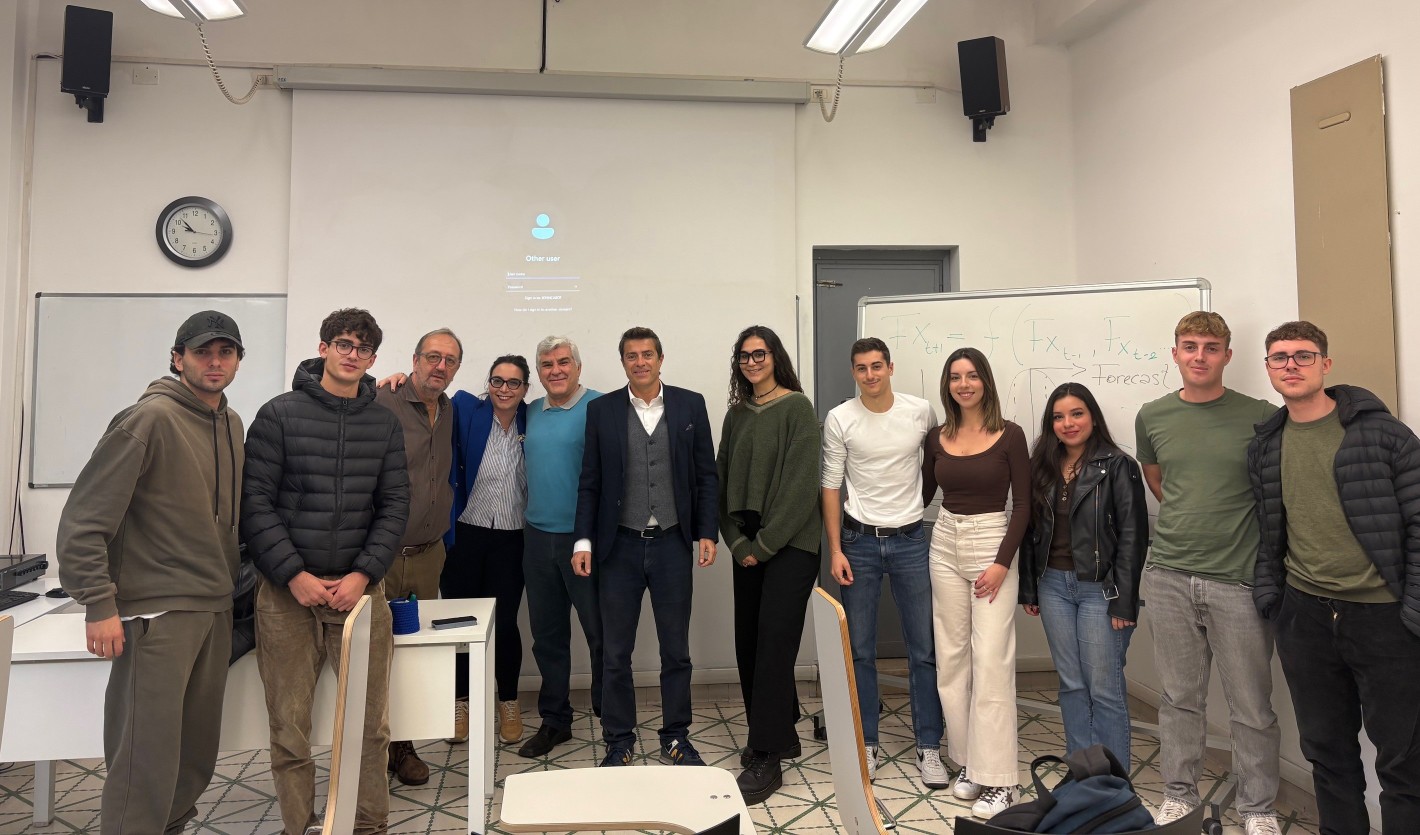On October 28, 2025, Francesco Lapenta, director of the Institute for Future and Innovation Studies at John Cabot University, gave the opening speech at the 8th Annual Conference for the National Association of Public Managers and High School Professionals (ANP). The title of this year’s conference, held in Rome, was “Governing the Education System in a Changing Society: Ethics, Vision, and Responsibility.” The ANP gathers annually to debate reforms regarding the future of the Italian school system.
Central to this year’s discussion was the acceleration of artificial intelligence, automation, and synthetic media in the context of Italian high schools. The crucial question for education is no longer what students know, but how they inhabit change.
During his talk titled "Governing the Future: Education, Artificial Intelligence, and the New Frontiers of Public Responsibility," Lapenta stated: “The world that schools once trained us to enter has vanished; the next one unfolds inside the classroom itself.” He argue that artificial intelligence does not simply alter teaching methods, but rewires cognition, authorship, and attention. The task for schools is not to compete with machines, but to preserve the human capacity to think slowly, to deliberate, and to doubt.
Lapenta argued that Italy's challenge is to align technological literacy with the social and civic responsibility of education. Schools cannot become passive sites of digital consumption; they must remain laboratories of ethical intelligence, where students learn how systems work before those systems learn how students think.
Lapenta emphasized that the future is already here, but it is not “evenly distributed.” Artificial intelligence is already present within Italy’s schools, but it is unevenly, informally, and largely ungoverned. Most institutions wait for guidance that arrives slower than the technology itself. Lapenta stated that the question is not whether schools will adopt AI, but whether adoption will be deliberate and equitable, or whether it will happen by default and deepen existing disparities.
Lapenta called on the Ministry of Education to create space – regulatory, budgetary, and administrative – for a handful of schools that can pilot new models. He believes Italy's decentralized educational structure is well-positioned to allow for distributed experimentation without requiring system-wide consensus. However, this requires institutional permission to act.
On a civic level, Lapenta argued that schools must teach students to interrogate algorithmic system functions, not just use them. Most consequential decisions in contemporary societies are increasingly delegated to systems that operate through inference rather than transparency. Schools must teach students to interrogate these systems, not just use them.
Lapenta concluded by expressing that public education in every country is facing the same paradox: how to safeguard equality in a world of personalized algorithms. Italy's debate shows that reform cannot be reduced to efficiency metrics or curriculum updates. It requires an intellectual repositioning of the school within society.
The conference included presentations from Lorenzo Pavesi (University of Trento) on neural network architecture, Walter Quattrociocchi (Sapienza University of Rome) on platform algorithms and epistemic polarization, and Charles Browne (Meiji Gakuin University, Tokyo) on AI integration in East Asian educational contexts. A panel including Don Luca Peyron (Università Cattolica, Milan), Massimo Bustreo (IULM, Rome), Tommaso Agasisti (Politecnico di Milano), and Marco Pontis (Università di Perugia) explored ethics and responsibility in automated systems.












